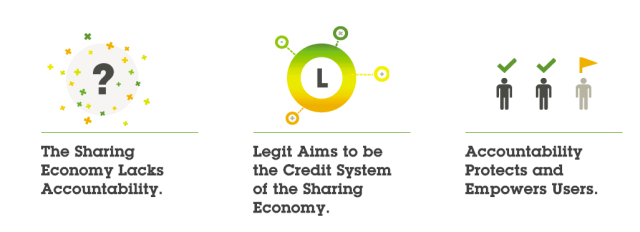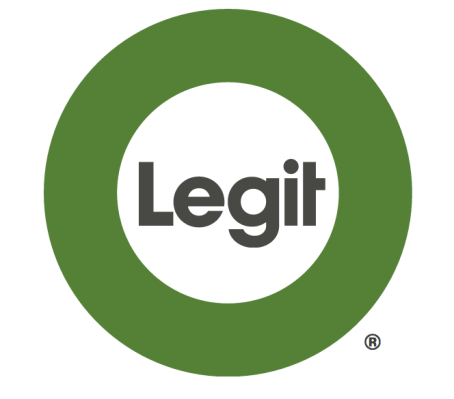Legit, a startup working on a universal reputation system that could help sharing economy services verify whether users are trustworthy, has announced its team will join Facebook. Specifically, co-founders Jeremy Barton and Rob Boyle will now work for the world’s top social network.
Legit’s exit blog post from a few days ago offers little details on the move, but we’re awaiting a response from the founders. Facebook confirms with me that it has hired Boyle and Barton. However, they were brought in through more tradtional hiring procedures and not Facebook’s corporate development squad, so this is more of a standard set of hires than a typical acqhire (as this article originally stated).
Legit’s site and development of its service has shut down, but you can see its old site here. The startup’s investors included Ben Narasin of Triple Point Ventures, William Smith, Craig Shapiro of Collaborative Fund, Thaddeus Jampol, Clint Korver and Miriam Rivera of Ulu Ventures, and JTH. Amongst its advisors were Othman Laraki of GeoAPI.com / Mixer Labs and Reddit co-founder Alexis Ohanian.
Legit went through a series of pivots, first trying to be a user-facing repuation service and later an embeddable reputation widget. Eventually, the team settled on building a reputation API that pulled in info about people from across the web. Third-party services would be able to implement Legit’s API to instantly know more about one of their users, plus give their peers that interact with them on the service confidence that they were dealing with a real person that wouldn’t scam them.

The company described itself saying “We correlate data across marketplaces, creating a holistic picture of a user’s reputation. Legit measures real, transaction-based accountability without relying on social network data. Overall behavior improves when everyone is held accountable…the good reputation that users build on other marketplaces empowers them on yours.”
Trust is a huge problem on the web, where people can easily hide behind pseudonyms and one-off accounts. This hampers many startups, especially peer-to-peer services where users have to trust each other. If you were buying something from someone, you might feel a lot more confident about meeting them at night or sending them money if you could see they’d be rated well and done plenty of transactions on other websites without an issue.
Legit wanted to build a service so even newbies on sharing economy services could rely on their past trustworthiness. It outlined its thoughts on the need for such a system in its blog post “Can I trust this person who I have never met?”
Facebook already helps many startups with trust verification. It works well because a large friend count of real people is tough to fake. Facebook aids Airbnb users to see if they have any mutual friends with people they might stay with, and both Lyft passengers and drivers must sign-up through Facebook to authenticate their identity. This makes the deal a smart fit. One would expect the Legit team to work on Facebook’s personalization platform, which is becoming a backbone for plug-and-play trust on the web.
Not necessarily, though. Legit’s co-founder Jeremy Barton explains, “While we will be working on other initiatives within Facebook, we remain huge advocates of the Sharing Economy / Collaborative Consumption and are confident the movement will continue to grow.”
You can read the full note about Legit’s history here.
